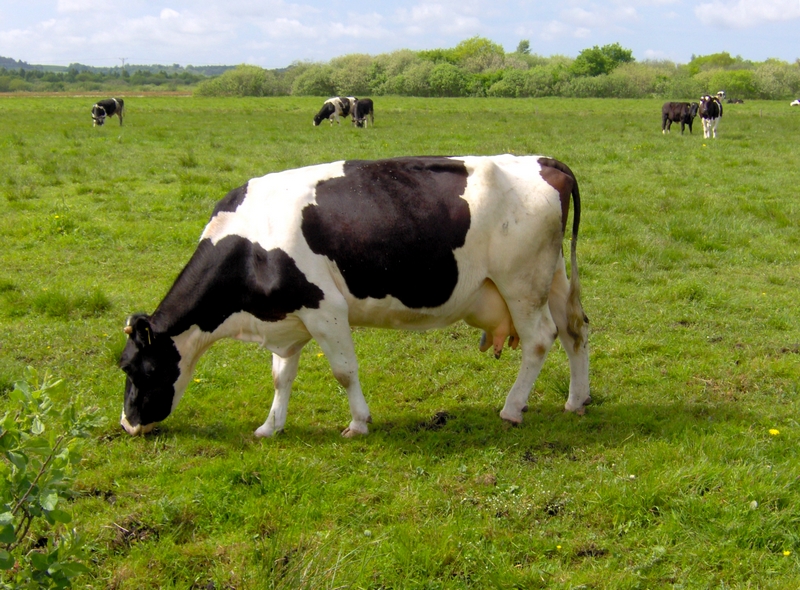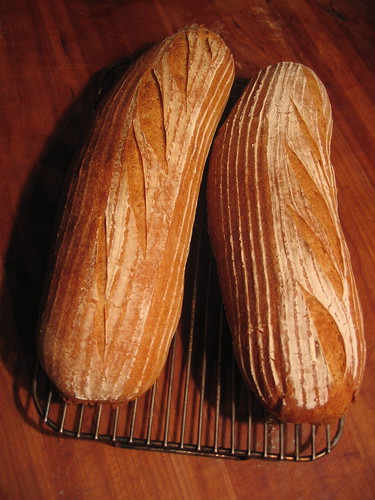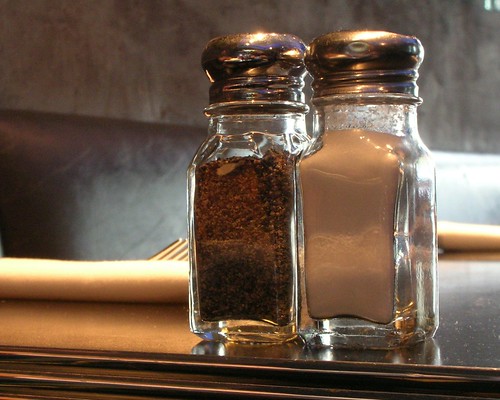Eating Locally
I just got the latest email newsletter from the Organic Consumers Association. I followed a link to a fascinating article about local food: Eating Local: There's No Plate Like Home.
I'm a big fan of eating locally-grown foods. I have been blessed to live for the last 10 years in places like Sacramento, CA and the NYC area, which have access to amazing produce. I've also been lucky to live near biodynamic farms and CSAs, which to me are an improvement on organics.
I've noticed that organic milk in stores is always ultra-pasteurized, because the dairies are few and far between. California allows raw milk products to be sold in supermarkets, so I could get them at the co-op, though they were shipped 150-200 miles. In New York, raw milk is only available directly from the farm, so I currently get raw milk through a herd share program at Pleroma Farm, which is just under 100 miles away.
I'm concerned about both the environmental costs of fossil fuel use and the prospect of diminishing supplies. I learned something about the scope of the link between food distribution and fossil fuel use in this article:
In his book Home Grown: The Case for Local Food in a Global Market, Worldwatch Institute senior researcher Brian Halweil writes about the enormous Mid-Atlantic regional distribution center for Safeway supermarkets in Upper Marlboro, Md., where all the East Coast produce is inspected. Even if the products will eventually be sold in a farmer's hometown 400 miles away, they must first be shipped to this central location then shipped back.
But this article takes the local concept further. The 100-mile diet sounds like an amazing exercise: only eat foods grown within 100 miles of your home. I could easily live on vegetables from the biodynamic garden across the street (at least in summer, but then I could get more local stuff from the co-op down the street). I could even get apples and berries from within 5 miles.
But...no coffee? No iced tea? NO CHOCOLATE? I would really miss that food of the gods.

And...no sugar? No olive oil? No salt?
The article recommends using butter instead of oil, and honey instead of sugar. I guess if I can't get coffee, I don't really need sugar to go in it.
I used to think, yeah - we should just eat locally and so many problems would be solved. We'd eat more nutritious food, use less petro resources, support local business, etc. Sounds like a winner all around.
Then I realized that I was partially basing my utopian food vision on an incorrect historical model. I was a big Little House on the Prairie junkie as a girl, and I recently bought a Little House cookbook. But they used sugar, salt, and a bunch of other imported items in addition to wild game and homemade sourdough.

Humans have been trading foods and spices for thousands of years. I realized, duh, once we had the wheel and seaworthy boats, everyone could have sugar and salt.
Sure, those things were once so prized and expensive that the woman in charge of the house would keep the keys to the spice cabinet on her person at all times. But nowadays, I think I could make an exception for sugar and salt in the local food arena.

Also, I live in a maple sugaring area, so I could get sugar from my backyard. Also I found out that there is an active salt mine within about 200 miles of my home. Gotta love the internet!




1 comment:
We're struggling to eat locally too. We joined a co-op that has a relationship with a nearby organic farm, but at this time of year in Houston the produce is quite limited. I think we're getting better at it slowly. And I think there is a case, like you said, for exceptions on chocolate or other goodies. It would be better, though, if the diet was theorized in a way that didn't make people feel guilty for making certain kinds of exceptions.
Post a Comment